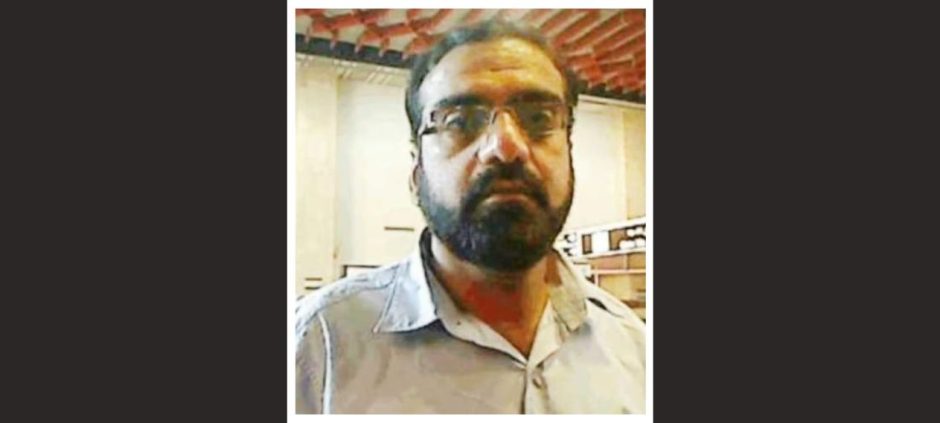Imagine being known simply as the “chaprasi” yet finding yourself at the heart of a billion‑rupee scandal. That’s the unusual path of Maqsood Chaprasi. In a country where public service is often invisible, his story draws attention, though for all the wrong reasons.
He started as a low‑wage employee but ended up in high‑stakes politics, allegations, and sudden death. What does this tell us about the state of public servants and accountability in Pakistan? Let’s dive in and unpack the life, the claims, and the unanswered questions.
Early Life And Employment At Ramzan Sugar Mills
Maqsood’s journey begins with modest means. He worked as a peon (chaprasi) or tea‑boy at the Ramzan Sugar Mills in Lahore, a factory owned by members of the political elite. According to legal papers, his last drawn salary was about Rs. 25,000 in 2017. It seems unremarkable, except that what followed was anything but.
He was a simple employee with basic responsibilities, not a business tycoon. Yet his name emerged in a high‑profile money‑laundering investigation. The contrast sparked public curiosity and suspicion.
Money Laundering And Proclaimed Offender Status
The real shock comes with the allegations. The Federal Investigation Agency (FIA) claimed Maqsood Chaprasi held multiple benami (dummy) bank accounts where billions of rupees were transferred. For someone earning a minimal salary, the numbers seemed impossible. One document said as many as “seven benami accounts” were opened in his name, allegedly linking him to funds of approximately Rs. 2.966 billion.
And because of this, he was declared a proclaimed offender. He left Pakistan for the UAE in March 2018 and stayed abroad until his death. The figure of a chaprasi holding enormous sums raised major questions: Was this a figment of corruption, manipulation, or something deeper?
The Sudden Death Of Maqsood Chaprasi
Then came the twist. On June 7, 2022, Maqsood Chaprasi died in Dubai from a reported cardiac arrest. The Dubai Police declared there was no foul play after investigating the scene. Yet in Pakistan, opposition figures demanded independent inquiries into why someone central to a billion‑rupee case died abroad with such little explanation.
The timing and context, a fugitive accused in a major case, living abroad, dying suddenly, created a shockwave in the media and among citizens. It triggered debates about how public servants, however modest their role, can end up enmeshed in monumental stories.
Public Servants And Accountability:
Now let’s zoom out. Maqsood’s saga isn’t just about one person. It raises questions about how low‑level workers in Pakistan’s large organisations can become pawns, accused accomplices, or shameless faces in big scandals.
- How often is the “chaprasi” used as a convenient scapegoat?
- Are accountability systems strong enough to protect the rights of even the lowest wage earners?
- What happens when a small‑time employee is alleged to handle billions?
His story asks us to reflect on power, privilege, and the visibility of public servant roles in Pakistan.
Ever wondered how someone with a modest salary ends up accused of enormous transactions? That gap isn’t just about money; it’s about a system where roles, records, and rights often blur.
Lessons For Pakistan And The Citizen Reader
What can ordinary Pakistani citizens, readers, and riders of life take from this?
- Transparency matters, even at the lowest levels of public employment. If a chaprasi can be accused of billions, what about other unknowns?
- Rights and protections for workers should never be overlooked, whether the person is a janitor or a manager.
- Critical thinking helps: when you read a headline about “peon becomes billion‑rupee suspect”, question the system behind it, not just the person.
- Accountability across ranks is crucial. Service‑grade roles must be seen, heard, and safeguarded.
And remember, these are not just abstract lessons; they affect everyday labourers, office staff, and workers in Pakistan who may never make the news.
Beyond the Headlines
The life of Maqsood Chaprasi is not simply a story of scandal, nor is it just another case file. It’s a mirror held up to how public servants, especially those at the bottom rungs, exist in Pakistan’s system. It forces us to ask: Are they invisible until politics uses them? Do the rights and dignity of everyday workers matter as much as the headlines?
If you’re curious about stories that reflect the hidden side of public service, keep asking questions, keep digging for truths, and don’t settle for the surface. Share this blog with someone who thinks “it could never happen to us” and spark a conversation.











